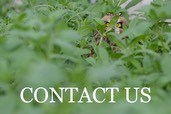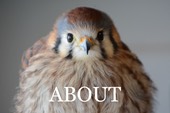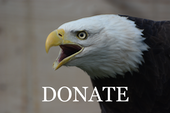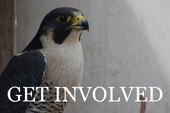We are so Thankful

I never cease to be amazed at the generosity of BMW supporters. Last week, after a very successful Open House, BMW member Dorothy Van Note offered to match additional donations to BMW up to $2,500. In one week, you raised an additional $5,075, bringing the Open House total to $10,081. These funds will be used to further BMW’s mission of supporting native wildlife through rehabilitation, education and research. We are deeply grateful to all who help make these efforts possible through the donation of your time, talents and finances.
Thank You also to the Clara & Art Bald Trust and The Kinsman Foundation
BMW has received a $2,000 grant from the Clara & Art Bald Trust to help fund a case study by Northwest Avian Resources of BMW’s raptor data to asses positive population effects of raptor rehabilitation conducted by BMW, and compile legal and biological justifications for the inclusion of raptor rehabilitation as a mitigation tool for ongoing energy industry “take” of raptors. This has the potential of providing a significant new source of funding for raptor rehabilitation.
BMW has also been awarded a $12,000 grant by The Kinsman Foundation for Operating Expenses in 2020. We are very grateful to the Bald Trust and The Kinsman Foundation for their ongoing, generous support.
The Week in Review
There were just 7 new admissions this past week: 3 Red-tailed Hawks, 1 Great Horned Owl, 1 Common Raven, 1 House Finch and 1 Dark-eyed Junco. Two of the hawks were gunshot victims.

The first, 19-537, an adult male, has a reasonable chance of recovering. An air rifle pellet fractured his left humerus. Since there was very little displacement at the fracture site, the wing was immobilized with a bandage. He was also treated for lead toxicity. There is evidence that a blood lead level of 2.5 micrograms/deciliter can result in increased avian mortality. 19-537’s lead level was 9.8 mcg/dl. Raptors are exposed to lead when they scavenge carcasses shot with lead ammunition. The way to prevent secondary lead poisoning in wildlife, and in people, is to hunt with nonlead ammunition.

The second hawk, 19-541, was not as lucky. The projectile shattered the left wingtip. The damage was not repairable. The injury was likely two or three weeks old. You can see by comparing the radiographs that there is much less muscle mass on the second bird. It was very near the point of starvation.







